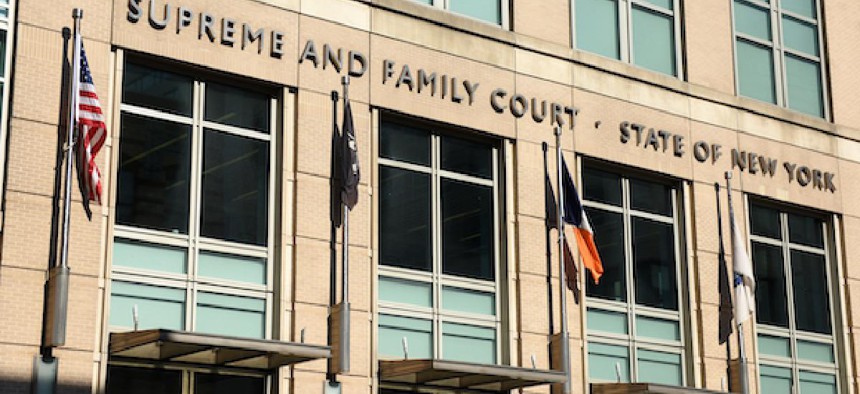Nonprofits
Family court attorneys sue the city and state for better pay
The lawsuit claims that New York family court attorneys’ paltry pay is preventing their clients from getting adequate service.

Kings County Family Court in Brooklyn. Bumble Dee/Shutterstock
A lawsuit, filed by 10 New York bar associations, against New York City and the state alleges that court-appointed attorneys in family court have not received sufficient pay for nearly 20 years, according to a report from The Imprint.
The suit claims that the attorneys representing parents have been denied fair pay, which is a “violation of the constitutional right of children and indigent adults to meaningful and effective legal representation.”
The suit was initially filed in July but was amended in September, now a response to the amended complaint is due on Nov. 17.
The attorneys say that it is their clients that are bearing the brunt of their low wages, as they feel inclined to take on more cases to get by and thus are not able to provide the best representation for their clients. A report from the Commission on Parental Legal Representation, presented to Chief Judge Janet DiFiore in 2019, indicated that the low pay given to family court attorneys “incentivizes accepting a high volume of cases and necessitates picking up private pay cases to supplement their earnings in order to make a living.”
When in criminal court, these attorneys are only able to make a maximum of $75 per hour when dealing with family cases and felonies and $60 per hour for misdemeanors, whereas federal court attorneys are able to make $155 per hour. The Commission on Parental Legal Representation’s 2019 report asked that family court attorneys have their hourly pay bumped up to $150 per hour.
Upon receiving the report, DiFiore wrote to then-Gov. Andrew Cuomo, asking that this “ongoing crisis” be addressed.
“Assigned counsel rolls continue to struggle across the state exacerbating already excessive caseloads, endangering the quality of legal representation for indigent litigants and contributing to the backlogs that impair the operational efficiencies of our criminal and family courts,” she wrote.
